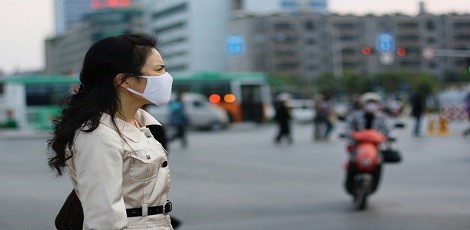The World Health Organisation and the Climate and Clean Air Coalition to Reduce Short-Lived Climate Pollutants have produced a report outlining the urgent need to reduce emissions of black carbon, ozone, methane and carbon dioxide, which all contribute to climate change.
Frequently described as short-lived climate pollutants (SLCPs), they not only produce a strong global warming effect, they contribute significantly to the more than 7 million premature deaths annually linked to air pollution.
According to the estimates of a recent landmark global study published in The Lancet (Lim SS, et al, 2012), indoor air pollution was responsible for some 3.5 million deaths annually in 2010, while outdoor air pollution caused about 3.3 million deaths. Most of these deaths are due to excessive exposures to particulate pollution, which includes significant black carbon particles.
Not only can reduced climate pollutions improve climate change, global warming and decrease deaths, it also affects disease, food security, diet and physical activity.
“This report recommends actions that countries, health and environment ministries, and cities can take right now to reduce emissions, protect health and avoid illness and premature deaths, which often take the greatest toll on the most vulnerable,” Dr Flavia Bustreo, Assistant Director-General at WHO.
‘Quick action to reduce black carbon, methane and other ozone precursors are much needed now, ‘ says Helena Molin Valdés, head of the UNEP-hosted CCAC. “We know that the sooner we start reducing these pollutants the sooner we will relieve the pressures on climate and human health.”
The four key interventions, rated medium to high:
- Reducing vehicle emissions by implementing higher emissions and efficiency standards could reduce black carbon and other co-pollutants from fossil fuels, improve air quality and reduce the disease burden attributable to outdoor air pollution.
- Policies and investments that prioritize dedicated rapid transit such as buses and trains and foster safe pedestrian and cycle networks can promote multiple benefits, including: safer active travel and reduced health risks from air and noise pollution, physical inactivity, and road traffic injuries.
- Providing cleaner and more efficient stove and fuel alternatives to the approximately 2.8 billion low-income households worldwide dependent on primarily wood, dung and other solid fuels for heating and cooking, could reduce air pollution-related diseases and reduce the health risks and time invested in fuel-gathering.
- Encouraging high and middle-income populations to increase their consumption of nutritious plant-based foods could reduce heart disease and some cancers, and slow methane emissions associated with some animal-sourced foods.
The release of the report is a significant step in WHO’s ongoing work to prevent diseases and deaths related to air pollution and towards achieving the new global health goal. Target 3.9 aims to “By 2030, substantially reduce the number of deaths and illnesses from hazardous chemicals and air, water and soil pollution and contamination.”





